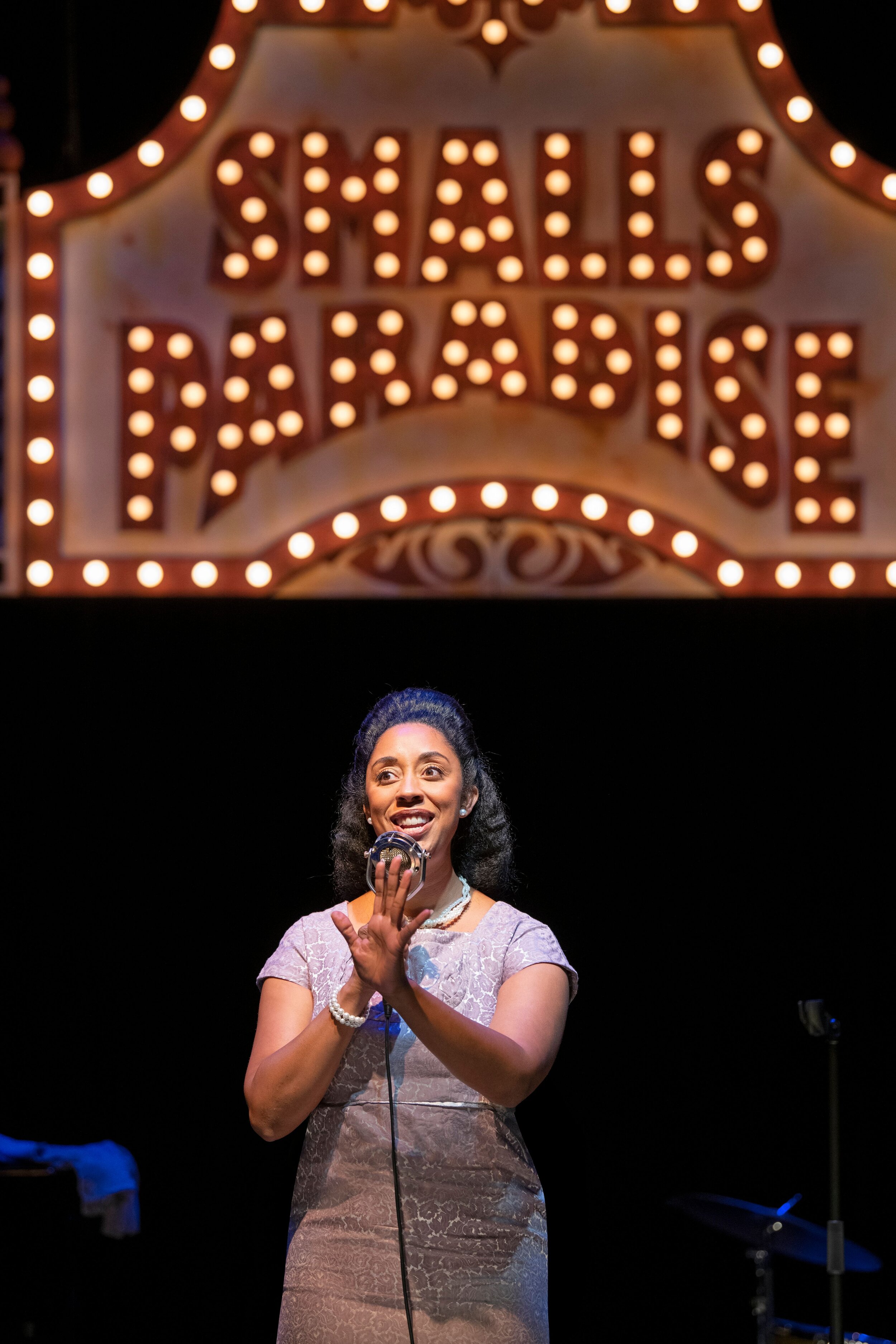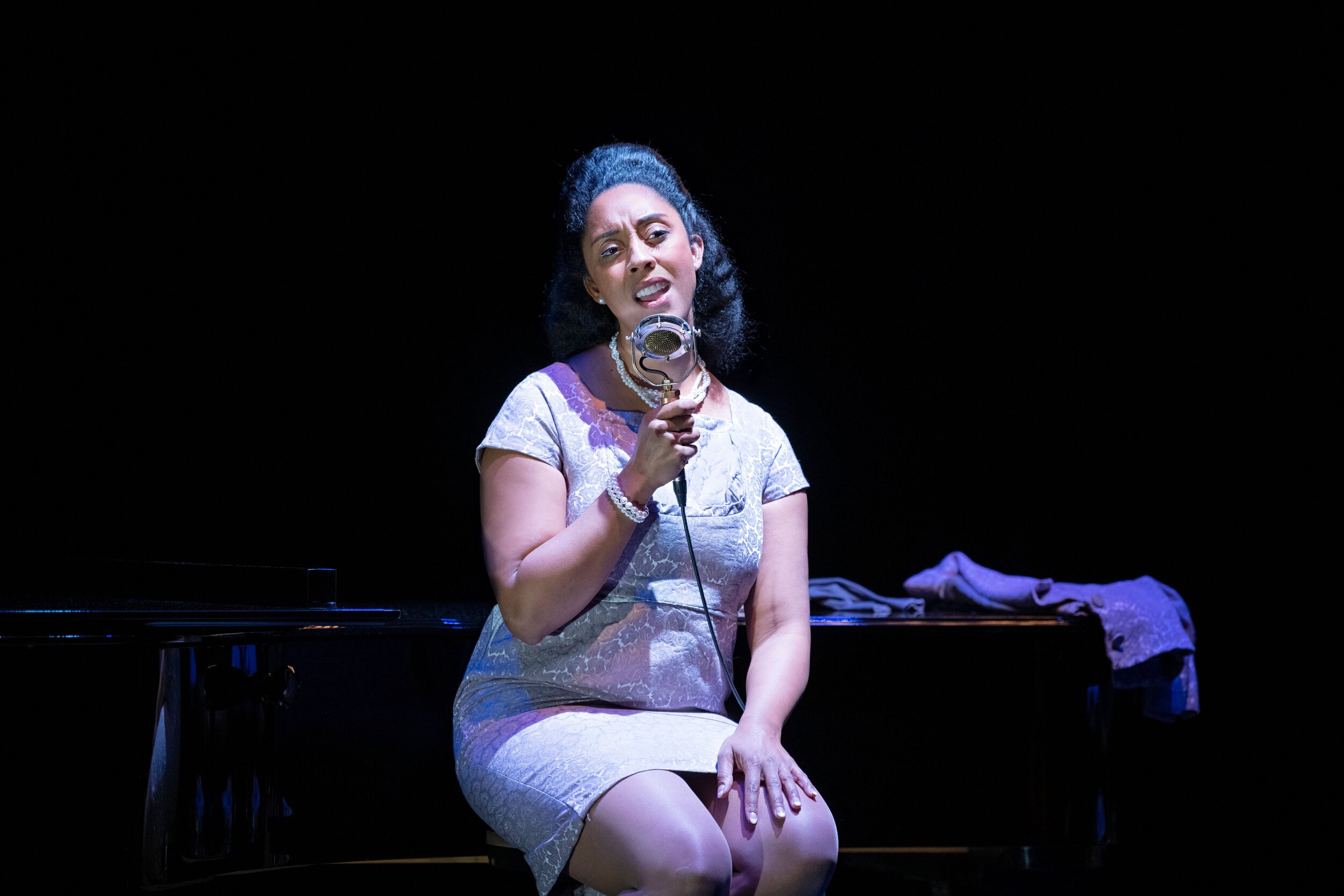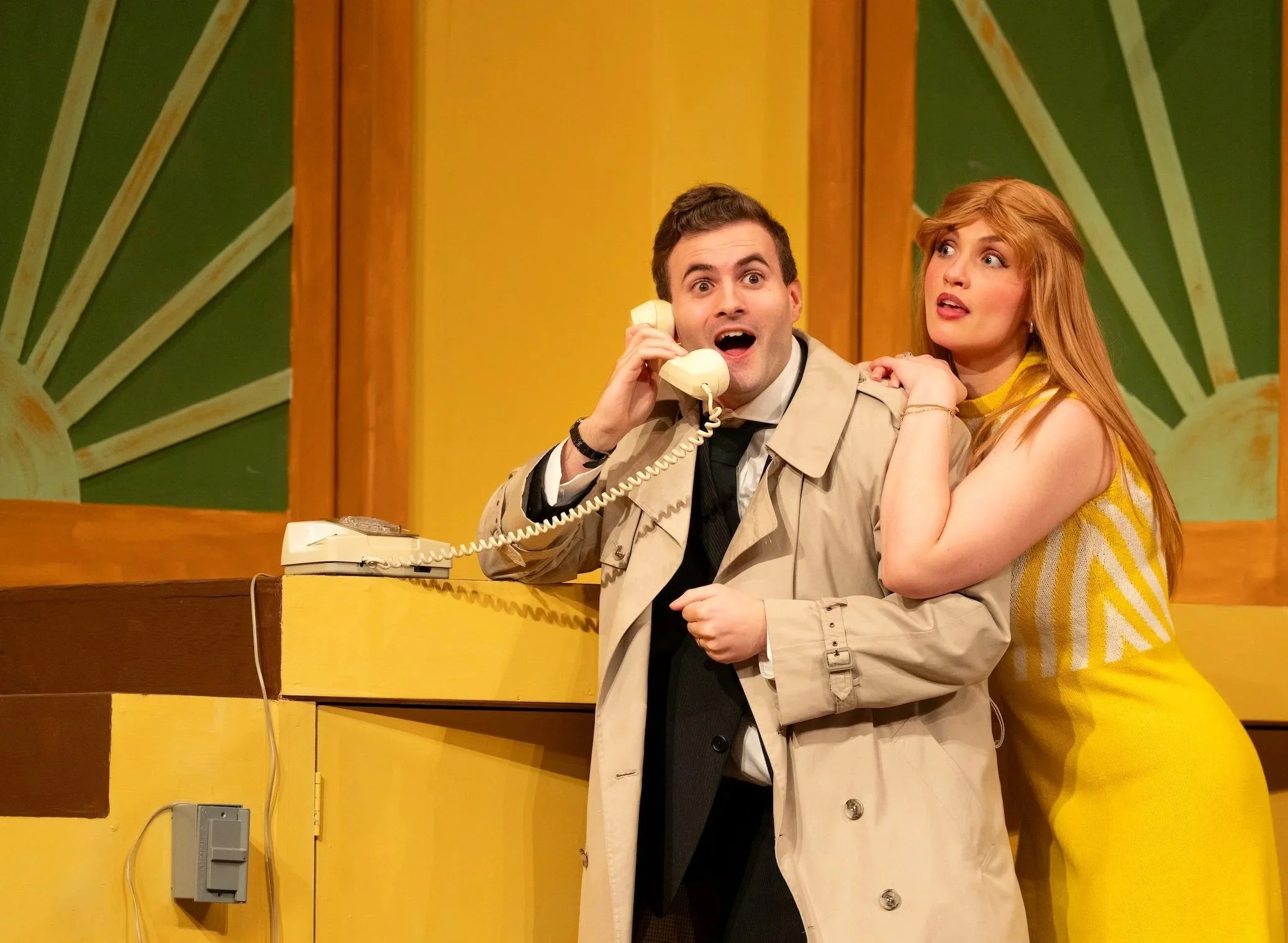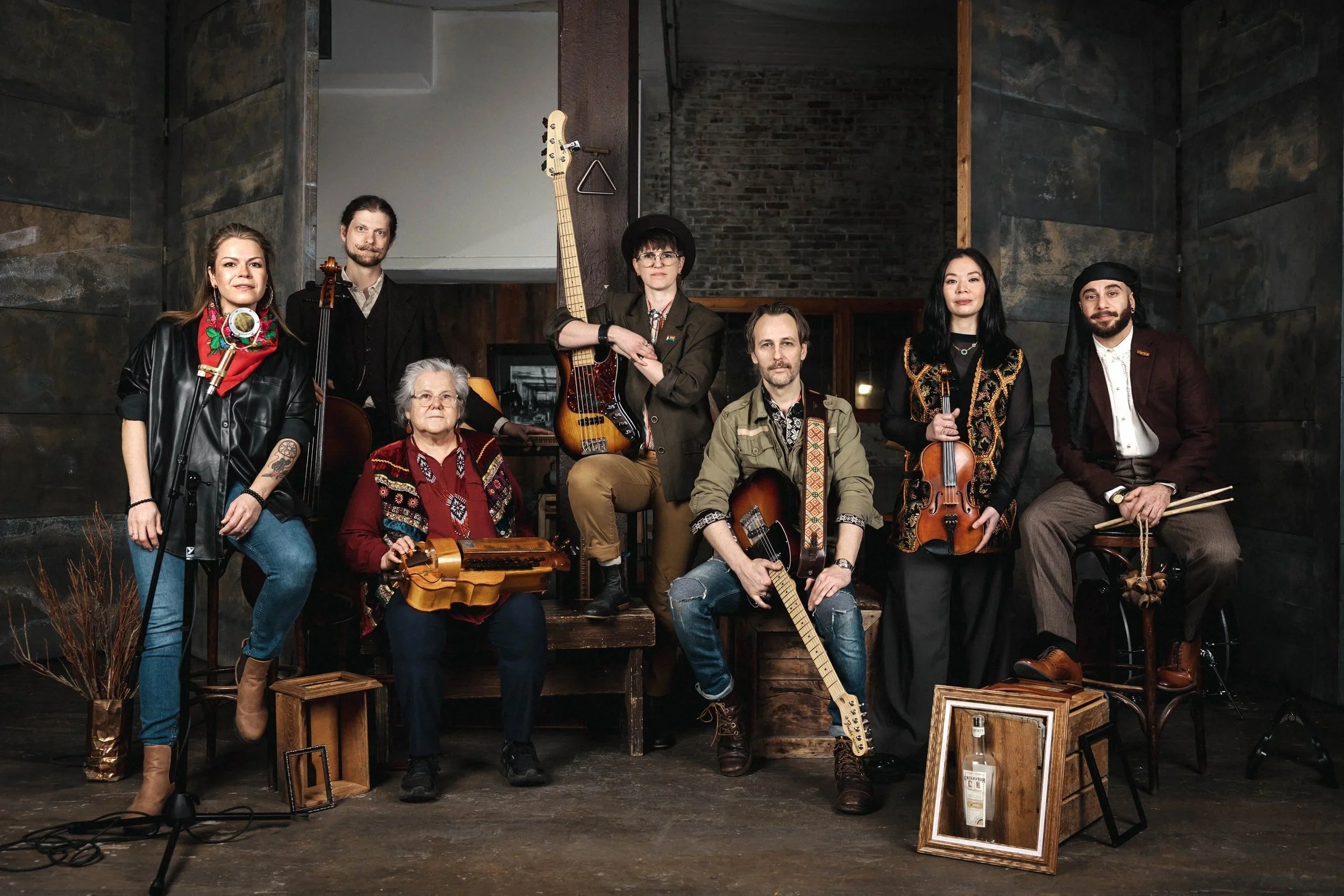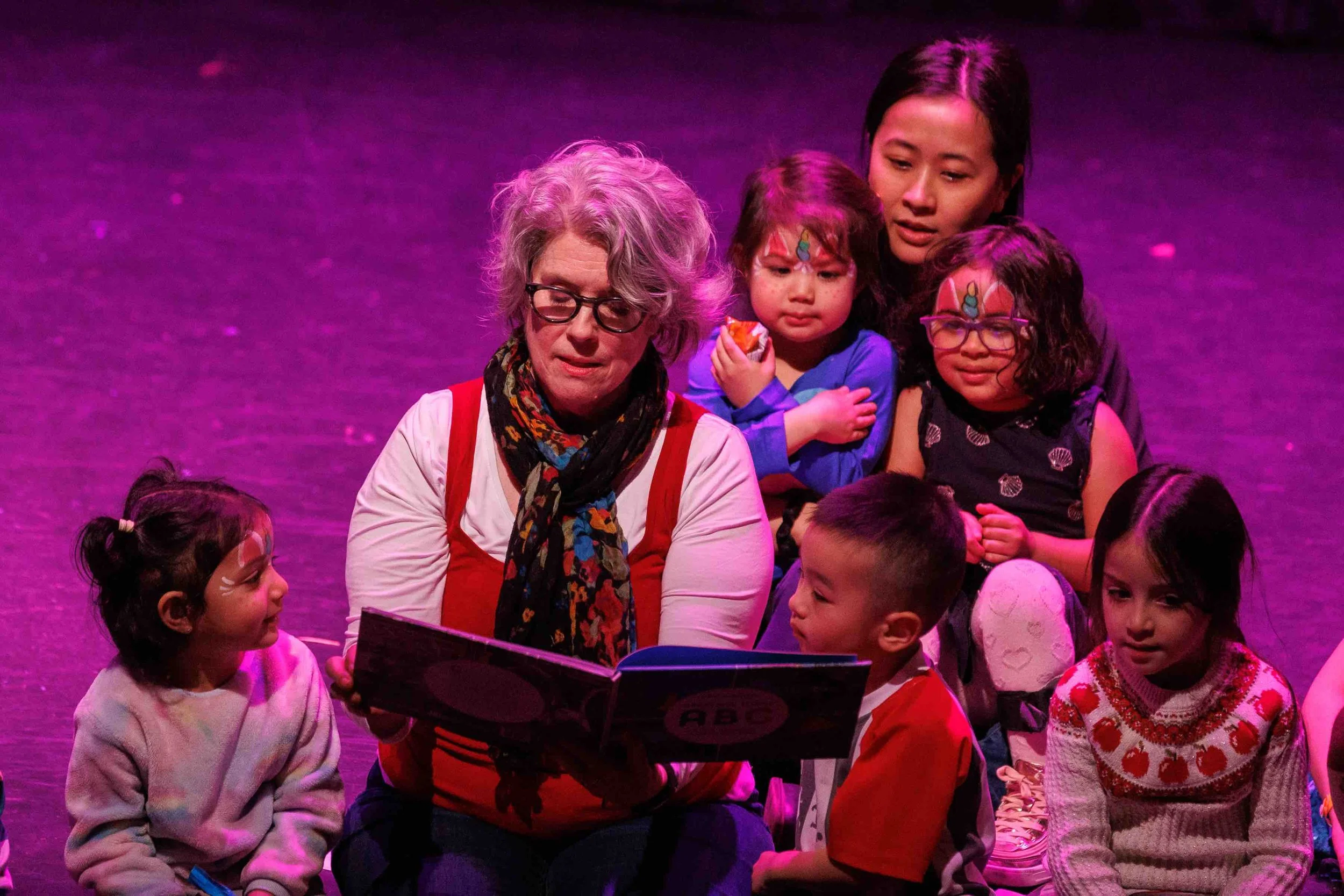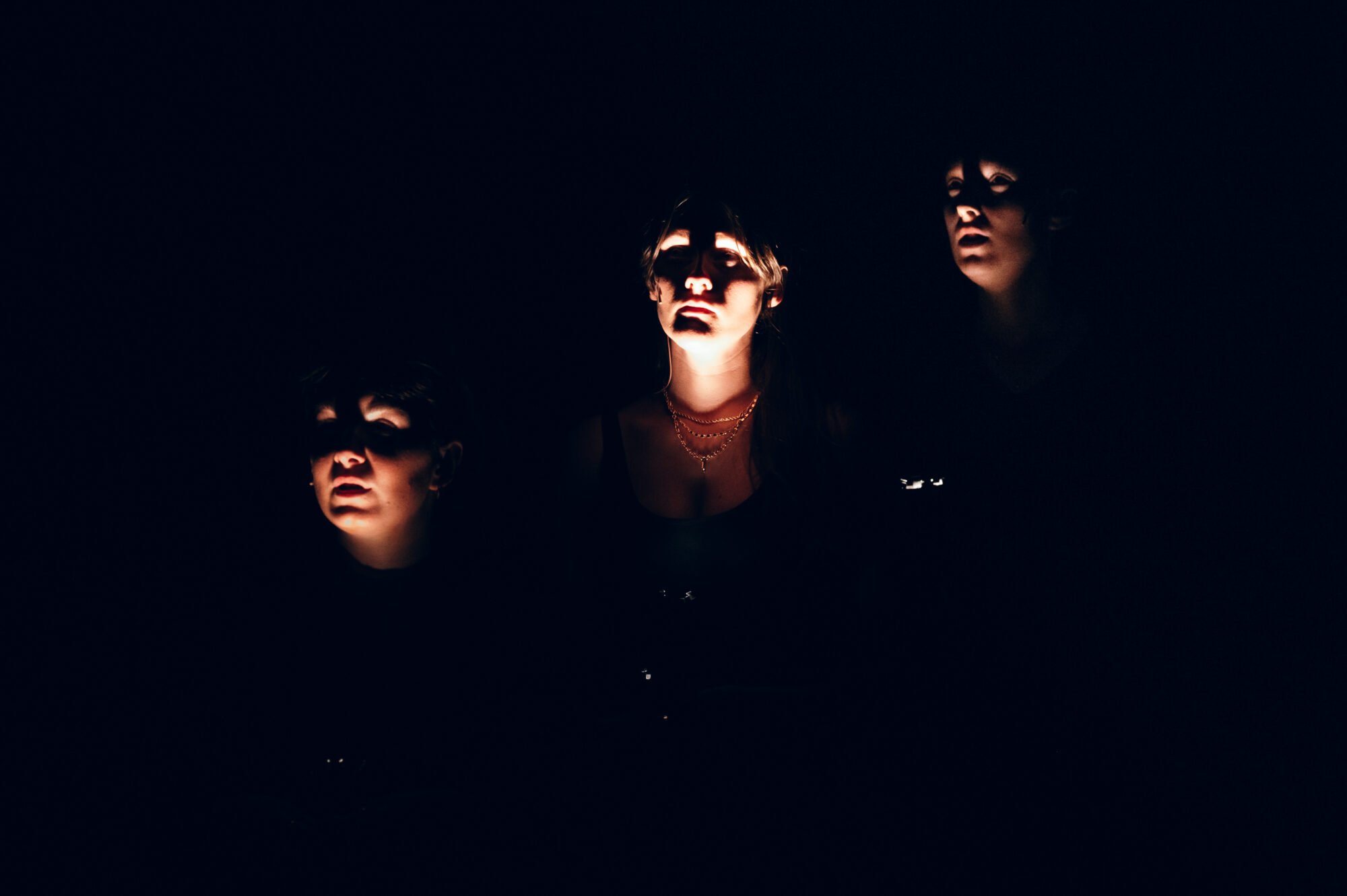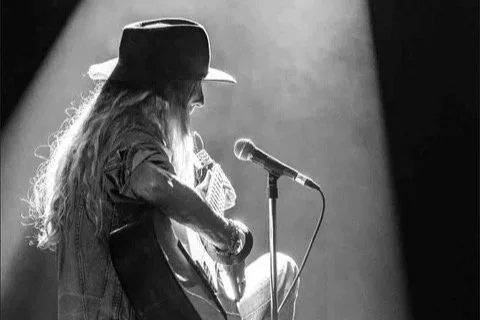Theatre review: Hey Viola! humanizes a civil-rights story with some fierce singing
Krystle Dos Santos and Tracey Power get creative with the tale of Viola Desmond
Krystle Dos Santos jumps from jazz to freedom songs in Hey Viola! Photo by Emily Cooper
Hey Viola! is at New Westminster’s Anvil Centre to October 25. Check COVID protocols here
Hey Viola! is part history lesson, part character portrait, part musical revue, but that description doesn’t capture the magic that happens onstage.
That’s due in huge part to the easy charisma and knockout singing of performer Krystle Dos Santos as Canadian civil-rights icon Viola Desmond. But it’s also a credit to Dos Santos’s cocreator Tracey Power, who finds unexpected ways to mix storytelling and music, here as she did in the very different Leonard Cohen-ode Chelsea Hotel.
Desmond, of course, is the woman who now graces our 10-dollar bill. She stood up when a Nova Scotia movie theatre dragged her out of the aisle and off to jail for sitting in a whites-only section in 1946.
In the unlikely telling here, Desmond, near death on the hardwood floor of her New York apartment, suddenly finds herself performing on the cabaret stage of her old Harlem haunt, Smalls Paradise. In this dreamlike setting, under set director Drew Facey’s smashing multilight marquee, she reflects on her life.
She goes back to growing up with 10 siblings in Halifax, describes building an East Coast beauty-salon empire for Black women, and then remembers losing it all after the widely covered movie-house charges and ensuing court battle.
Photo by Emily Cooper
Drawing heavily from Desmond’s biography by her sibling, Wanda Robson’s Sister to Courage, Dos Santos builds a deeply human portrait of a woman who’s easy to like: she’s a reluctant heroine with a biting sense of humour and flashes of pride and anger.
Throughout, the writing team weaves in other historical touchstones without ever lecturing, whether it’s a story about Black American haircare millionaire C.J. Walker’s slave ancestors or the galling roots of Jim Crow.
The turning point of Desmond’s life is treated with the horror it deserves, Dos Santos’s character obsessively remembering the details of losing a shoe as she’s dragged, or of feeling the wood under her fingernails as she clutches the doorway.
The songs, a range of Nina Simone hits, gospel, jazz, and freedom songs, weave into the narrative unexpectedly well, especially in the show’s second half. In the inspired arrangements, Dos Santos moves easily from the smooth retro jazz of “I Don’t Want to Set the World on Fire” to the rafter-shaking cries of “Power” in “Sinnerman” and the fierce emotional highs of the showstopping “Feeling Good”. Ably jumping genres along with her are music director Steve Charles, pianist Mary Ancheta, and drummer-trumpeter Chris Davis.
Perhaps most amazing in these COVID times is the way this socially distanced show at the Anvil builds connection and intimacy. You feel like you’re in a hallucinatory Smalls Paradise (some audience members sit at lounge tables in front of her, socially distanced and in masks, of course). Throughout, it feels like Desmond is having a one-on-one conversation with you.
As Dos Santos puts it near the end of the show, when she breaks the fourth wall, the portrait here aims to make Desmond “become more than just the face you carry around in your wallet”. Here’s hoping the team will be able to share that experience across the country when this insanity ends.
That would help reclaim a little more of the justice that Desmond tragically never saw in her lifetime. And hopefully, somewhere, she’s smiling down from her table at Small’s Paradise.


